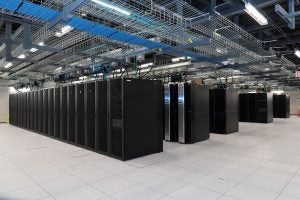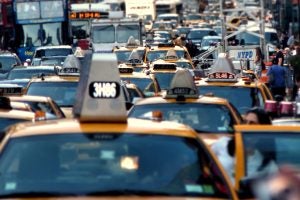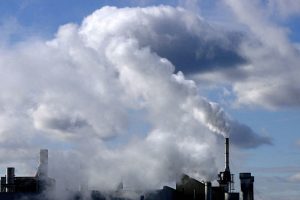 October 3, 2024
by Berit DeGrandpre
Regulations
State and Local
Water
October 3, 2024
by Berit DeGrandpre
Regulations
State and Local
Water
The Supreme Court will hear a challenge to a pollution discharge permit issued by EPA under the Clean Water Act. The case raises questions of statutory interpretation, administrative, and environmental law that have been hot topics at the Supreme Court in recent terms.
 April 17, 2024
by John Powers
Chemicals
Regulations
Water
April 17, 2024
by John Powers
Chemicals
Regulations
Water
EPA has been working quickly to regulate PFAS across the United States. The National Primary Drinking Water Regulation for PFAS is now finalized, and more final rules are right around the corner.
 April 12, 2024
by Christopher Slama
Air
Chemicals
Climate change
Regulations
April 12, 2024
by Christopher Slama
Air
Chemicals
Climate change
Regulations
Late last year, the EPA issued a formal Endangerment Finding, the first step in almost thirty years toward reducing the largest source of lead in the atmosphere. What took so long?
 April 9, 2024
by Andrew Lloyd Bellah
Climate change
Regulations
April 9, 2024
by Andrew Lloyd Bellah
Climate change
Regulations
The Board of Governors of the Federal Reserve System published new changes to Regulation HH pertaining to systemically-important Financial Market Utilities (FMUs) that clear and settle large-scale transactions between banks and other financial institutions in the United States. In this blog post, GELR Senior Editor Andrew Bellah highlights new operational risk management requirements for FMUs in Regulation HH that have become relevant due to emergent threats arising from climate change. While the amendments to Regulation HH don't explicitly mention climate change, their emphasis on the risk of severe weather and other tail-end scenarios denotes the seriousness of preparing critical financial market infrastructure for a warming world.
 April 8, 2024
by Jack Hatzimemos
Air
Regulations
State and Local
April 8, 2024
by Jack Hatzimemos
Air
Regulations
State and Local
After years of years of roadblocks and anticipation, New York City is scheduled to introduce its controversial Congestion Pricing toll in June. The congestion toll, which will charge drivers of standard vehicles $15 to enter parts of lower Manhattan, aims to reduce traffic build up and air pollution in the city. However, the toll has been met with tremendous scrutiny, particularly on the true environmental impact of the project.
 March 21, 2024
by Damon Hays
Agriculture
Climate change
Natural Resources
Regulations
Renewable Energy
Sustainability
March 21, 2024
by Damon Hays
Agriculture
Climate change
Natural Resources
Regulations
Renewable Energy
Sustainability
The current impasse over the nation's premier agriculture legislation is one that reflects the competing interests of modern food production practices and climate change mitigation efforts.
 March 21, 2024
by Stefan Koester
Energy
Regulations
Renewable Energy
Sustainability
March 21, 2024
by Stefan Koester
Energy
Regulations
Renewable Energy
Sustainability
IRS comment period for the 45V clean hydrogen tax credit guidance closed on February 26, 2024. This credit provides a tiered production tax credit for clean hydrogen depending on its emissions intensity. The draft guidance relies on three pillars to ensure emissions integrity – additionality, temporal and geographic matching. Judging by some comment responses, controversial reactions to each of these pillars were significant, with many commenters suggesting that the courts will have the final say on how these tax credits will be finalized. Will all this uncertainty derail the clean hydrogen economy?
 February 27, 2024
by Nathan Tatum
Energy
Regulations
State and Local
February 27, 2024
by Nathan Tatum
Energy
Regulations
State and Local
The Federal Energy Regulatory Commission (FERC) held its February open meeting on Feb. 15, 2024, addressing a number of items including cold weather reliability standards, hydropower permitting, and natural gas exports.
 February 23, 2024
by Diego Huerta
Air
Climate change
Fossil Fuels
Regulations
State and Local
February 23, 2024
by Diego Huerta
Air
Climate change
Fossil Fuels
Regulations
State and Local
Massachusetts v. EPA is seen as an unalloyed victory for the climate movement, but over 15 years after the case was handed down, legal knock-on effects from the decision have come back to bite.
 February 23, 2024
by Paige Power Kendrick
Air
Climate change
Fossil Fuels
Regulations
February 23, 2024
by Paige Power Kendrick
Air
Climate change
Fossil Fuels
Regulations
In the hope to leave Zombie Engines in the past, the EPA recently promulgated a new final rule on Greenhouse Gas Emissions Standards for Heavy-Duty Vehicles. In this GELR blog post, Paige Kendrick analyzes the recent changes regarding federal preemption of non-new locomotives and locomotive engines as well as steps being taken by California to reduce locomotive emissions.










